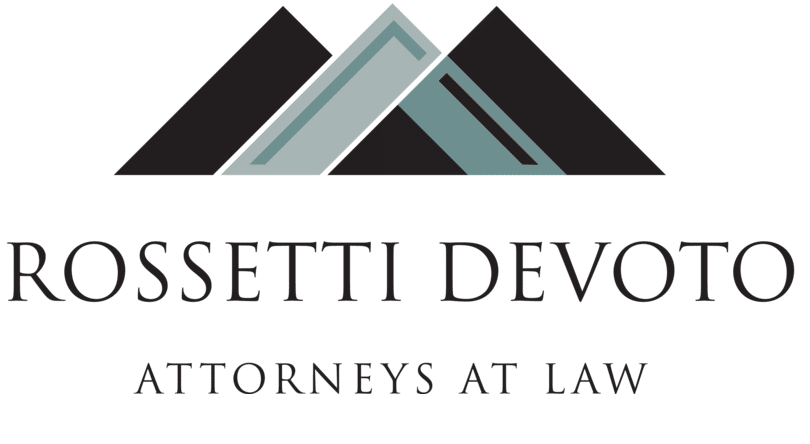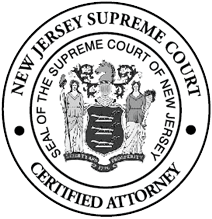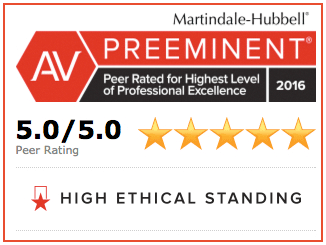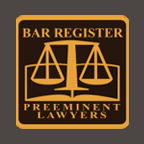Civil DWI Claims in New Jersey: Overlooked Causes of Action
Civil DWI Claims in New Jersey:
Overlooked Causes of Action
BY ANDREW J. ROSSETTI &
SCOTT S. AMITRANO
Rossetti is a partner, and Amitrano a law clerk in the Cherry Hill office of Rossetti & Devoto, PC
With the consumption of alcohol goes the golden rule: “Don’t drink and drive.” But not everyone heeds this warning. Every year a result of drunk driving or DWI is the death of people. All too often a person who has had too many drinks decides to drive and injures himself, his friends, or innocent third parties. While most fingers point at the driver, other parties such as bartenders, social hosts or friends may also be liable to the injured party. Many lawyers fail to appreciate or consider all avenues of recovery, and as a result, potential DWI claims are lost.
A. LICENSED ESTABLISHMENTS
When a person drives home drunk from a bar and injures or kills a third party, the driver will no doubt be sued. However, others may be comparatively at fault, particularly, the licensed establishment[s] where the driver was drinking before the accident.
The New Jersey Licensed Alcoholic Beverage Server Fair Liability Act, N.J.S.A. 2A:22A-1-7, commonly referred to as the Dram Shop Act, legally binds licensed establishments. Under the Act, servers of alcohol will be liable when they serve visibly intoxicated patrons or minors. N.J.S.A. 2A:22A-5(b). The statute defines “visibly intoxicated” as “a state of intoxication accompanied by a perceptible act or series of acts which present clear signs of intoxication.” N.J.S.A. 2A:22A-3.
While this definition does not add much clarity to what constitutes visible intoxication, most expert toxicology witnesses will testify that one whose BAC is above 0.13% will exude signs of perceptible intoxication; such as dilated eyes, slurred speech, flushed skin, unsteady gait, boisterous behavior, etc. An adequately trained server of alcohol should recognize these signs. However many bartenders and establishments place profits above safety and the responsible service of alcohol.
A.a. Are Bars Liable Then?
Bars will not however be liable for injuries whose cause was a patron who drives drunk; leaving a bar when that patron was never got any service at the bar. Consider this scenario: A person enters a bar while already clearly drunk. He orders a martini. But, the bartender refuses informing the patron that he is too under the influence to receive service. The patron, infuriated, leaves the bar and drives home. On his way, he gets in an accident with another vehicle and both drivers get injuries. The drunk driver wants to sue the bar for negligent supervision. And, argues that they shouldn’t have let him leave in such an intoxicated state. Similarly, the driver of the other vehicle wants to add the bar as a co-defendant.
The New Jersey Supreme Court recently addressed and resolved this controversial issue in Bauer v. Nesbitt, 198 N.J. 601, 612-613 (2009) by holding that, if the establishment never serves alcohol to the patron, then the bar does not have a duty to supervise him, and will thus not be liable for any injuries to, or caused by that patron once he leaves the establishment. See also, N.J. Drunk Driving L. § 38:5 (2009). Many of the headlines to this decision could give a lawyer the impression that Dram Shop cases are dead. However, the case did not change in anyway the liability of bars for the negligent service of alcohol.
B. SOCIAL HOSTS & DWI
Oftentimes a friend will visit another friend’s home, or attend a house party. Then, they will drive away in an intoxicated condition. Such a situation can result in the host being liable to third parties who got an injury from the drunk driver.
Consider this scenario: A friend whom you have not seen in a long time drives over to your place to have a few drinks. After two hours of reminiscing and consuming five gin and tonics each, you walk her outside to her car. You wish her farewell and go back inside. You receive a phone call 45 minutes later from your friend, who informs you that she has just crashed into a van on the highway and the other driver is unconscious.
The New Jersey Supreme Court in Kelly v. Gwinnell, 96 N.J. 538, 548 (1984) firmly established, that if a social host serves a guest she knows to be drunk, and she knows the guest will be driving, the host is liable when that guest leaves and injures or kills someone. See also, N.J. Drunk Driving L. § 38:2 (2009).
While Kelly, is still binding law, its holding was codified in N.J.S.A. 2A:15-5.6, which holds a social host liable when the host willingly and knowingly provides alcohol to either (a) a visibly intoxicated person in their presence or (b) to a person who is visibly intoxicated under circumstances manifesting reckless disregard of the consequences as affecting the life or property of another.
B.b. Blood Alcohol Levels
Interestingly, the statute provides certain presumptions based on Blood Alcohol Levels. An assumption is that a BAC less than 0.10% results in an irrebuttable presumption that the person tested was not visibly under the influence in the social host’s presence. Thus, relieving the social host from liability. However, if the BAC is between 0.10%-0.15%, there is now a rebuttable presumption that the driver was not visibly intoxicated in the social host’s presence, and the social host might still be on the hook. These presumptions make the case much easier for the practitioner since they attach immediately without the need for reliance on expert testimony.
In the above-mentioned scenario, the host is likely to be liable to her friend. And, to the injured party under both statutory, and NJ common law.
C. NEGLIGENT ENTRUSTMENT & DWI
When the owner of a car entrusts her keys to a visibly intoxicated friend, the owner may be liable for injuries caused to other passengers of the vehicle. As well as to other third parties injured by the intoxicated driver.
Consider this scenario: You and three of your friends arrive at a bar in the same car. After a night of drinking, you must come to a decision; which of you is the most sober to drive home. Being the owner of the car, but wanting to avoid a DWI offense, you hand your keys over to a friend who you believe is sober enough to drive. This is despite his slurred speech and dilated pupils. On the ride home, your friend falls asleep, drives the vehicle onto the sidewalk, and kills an innocent pedestrian. The toxicology report places the driver’s BAC at .17%.
In this scenario the owner of the car will find himself liable to the victim. The New Jersey Superior Court, Appellate Division in Wagner v. Schlue, 255 N.J.Super. 391, 397 (App. Div. 1992), held that a person in control of an automobile, who turns control over to someone who is visibly under the influence, under circumstances which creates a foreseeable risk of harm, will be liable for injuries the drunk driver’s negligence was the cause of.
It would be difficult to argue that the owner of a car who turns his keys over did not have control of the vehicle at the time. Not only would handing the keys to a friend violate New Jersey common law, but because of the BAC level of the driver, the owner will also be subject to N.J.S.A. 39:4-50, which penalizes persons in control of motor vehicles who allow people to operate their vehicles with BAC’s over 0.08%.
C.c. Owner’s Responsibility?
In addition to being liable to the dead victim, the owner may also be legally responsible for any injuries sustained to the friends inside of the car. Including the drunk driver. The New Jersey Superior Court, Appellate Division held that a passenger owes an affirmative duty to a fellow passenger to prevent a visibly intoxicated driver from operating an automobile when either (1) a special relationship between the passenger and driver exists, or (2) the passenger substantially encourages or assists in the driver’s torious conduct. Champion v. Dunfee, 398 N.J.Super. 112 (App. Div. 2008). The court held that such a special relationship could be fulfilled when one who hands his car keys over to a visibly intoxicated person. Id. at 122 (citing Wagner, supra, 255 N.J.Super at 122).
Not only has the owner formed this special relationship in the above-mentioned scenario, but he has also substantially encouraged and assisted the driver’s behavior. The owner not only encouraged his friend by requesting that he drive, but also actively assisted his friend by voluntarily handing him the keys while he was drunk. As a result, the owner may be liable not only to the driver, but to any third parties that the driver injures, including the two other friends in the back seat.
But the two friends who were not driving may find themselves in jeopardy as well. While a special relationship between them and the driver might not exist, perhaps they substantially encouraged their friend to drive drunk. If so, they had a duty to control the driver’s conduct. And, could thus be liable to any parties the drunk driver injures.
SUMMARY of DWI
In DWI accidents, often more than one party is at fault. In addition to the drunk driver, those who commercially serve him, socially serve him, or entrust a vehicle to him can potentially be liable for accidents caused by that drunk driver. Civil practitioners must make preparations to examine all avenues of potential liability and recovery to effectively represent their client. Unfortunately, many practitioners look to the drunk driver only and miss other viable causes of actions.









